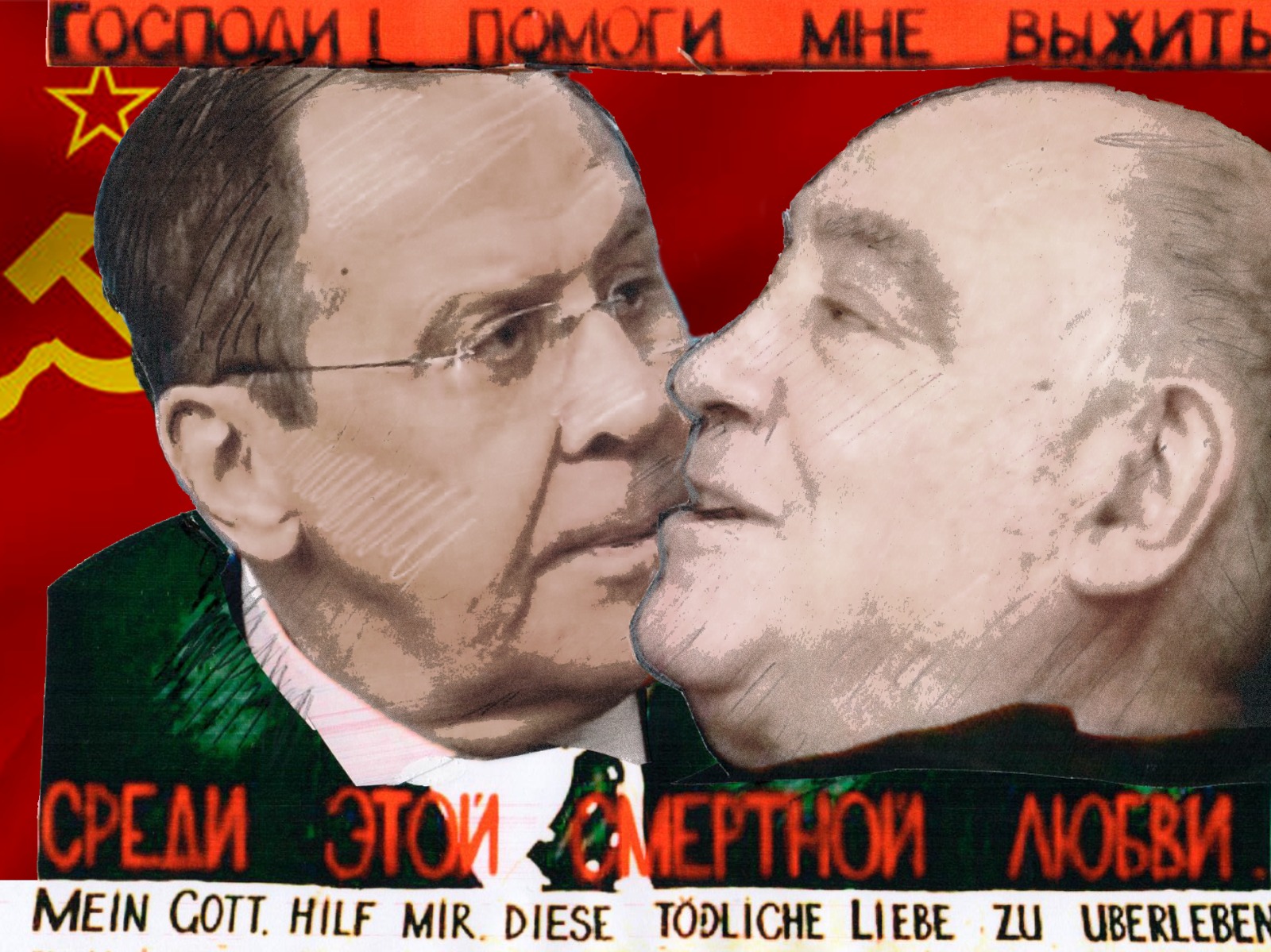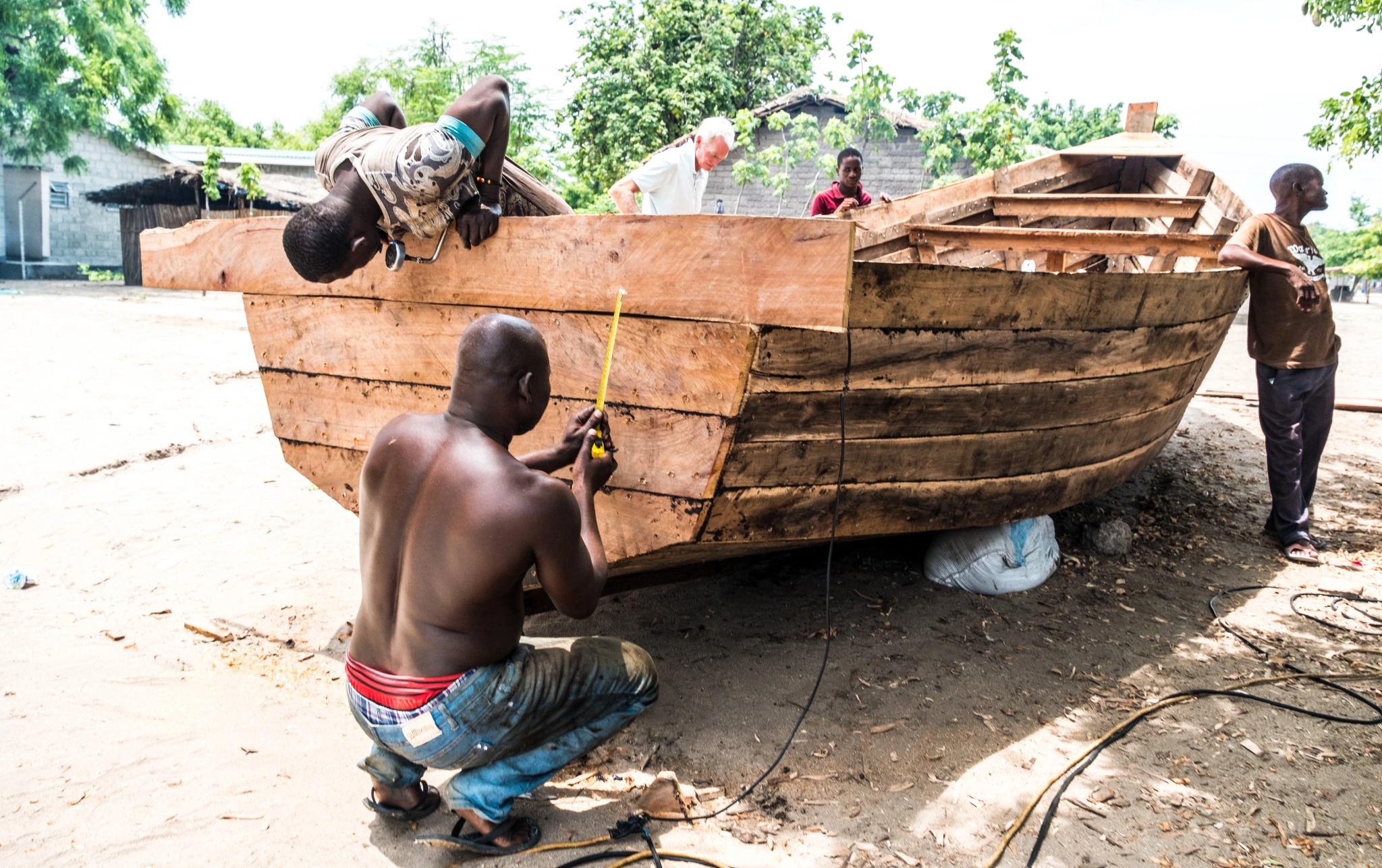News
The Defence of Russia Risks Taking South Africa Down a Dark and Authoritarian Road
The defence of the ANC government’s decision to exercise two of its few remaining seaworthy vessels with the Russian and Chinese navies ranges from the nostalgic to the ideological.

Former Director, The Brenthurst Foundation

Former Research Director, The Brenthurst Foundation

Even the SA Communist Party warhorse, Ronnie Kasrils — someone who should know better - has wheezed out to defend the apparently indefensible.
Rejecting the nostalgia thesis as “simplistic”, he predictably bases his defence on two features: one, that there is a double standard at play given unilateral Western actions. He cites US involvement in Afghanistan, Cuba and Israel among them, perhaps forgetting that the United Nations (including Russia) supported the action in Afghanistan in the wake of 9/11, a time when he served in Cabinet.
UN Security Council resolution 1386 was adopted unanimously on 20 December 2001. It authorised the establishment of the International Security Assistance Force to assist the Afghan Interim Authority in the maintenance of security in Kabul and surrounding areas.
That resolution was adopted by all 15 members of the then Security Council. The permanent members were China, France, Russia, the United Kingdom and the United States. The non-permanent members (who all supported the resolution) were Bangladesh, Colombia, Ireland, Jamaica, Mali, Mauritius, Norway, Singapore, Tunisia and Ukraine.
In any event, you can’t choose when to apply your “principles”. South Africa was a stern opponent of the US-led intervention in Iraq, but supports Russia’s unilateral intervention in Ukraine.
Kasrils tries to reduce the international support for Ukraine to US interventionism. But what about Finland, Sweden, Latvia, Estonia, Lithuania and the many other countries supporting Ukraine with weapons, medicines and the isolation of Russia — do they count for nothing?
He also rants about the “morality of US foreign policy, CIA-sponsored coups, punitive sanctions and blockades, military aggression and intervention globally”.
Again, Russia appears exempt from criticism when it does the same — and far worse — in Africa under the brutal rule of Wagner military interventions that secure mineral wealth for oligarchs.
Non-Aligned movement
More confusing, however, is Ronnie’s other argument, that this is apparently part of an attempt to resuscitate the Non-Aligned Movement.
“We share with Russia a common position, for reform of the UN system, for multilateralism, for economic growth of the global south, against Western imperialist hegemony and their hundreds of military bases enforcing their domination throughout the world at the expense of the choice and rights of other countries.”
It’s been a while since the world has heard the term, “Western imperialist hegemony”, save for in Caracas, Havana, Pyongyang, Harare and other shining development successes.
Most African countries, in fact, voted to condemn Russia’s invasion of Ukraine. Are these 27 countries somehow excluded from Kasrils’ “Global South”?
What Kasrils is really referring to when he talks of the “Global South” is the network of client states where Russia has bought influence, and with whom it shares a fondness for authoritarianism and a distrust of democracy.
Russia’s Nazi narrative
Despite his rejection of the nostalgia thesis, Ronnie reminisces about his military training in Odesa, a city in Ukraine whose citizens have been under constant Russian missile bombardment.
“Odesa and the Crimea, where training was also provided, were very Russian places,” Kasrils states matter-of-factly.
The truth is that they were very Soviet places.
Crimea voted by a majority in a referendum to leave the Russian Federation and join Ukraine. But, the “line” from Russia, just like the “line” from the Soviet Union in the old days, must be followed — and the facts be damned.
“Instructors were from all over the Soviet Union, as well as those of mixed Ukrainian-Russian descent in Odesa. We learnt about the Nazi collaborators in the western parts of the country, who assisted in the massacre of hundreds of thousands of communists, patriots and Jews during Hitler’s invasion,” he writes of the MK experience, being “often welcomed to solidarity events” opposed to Nazi collaboration.
His support of Russia’s narrative — that Ukraine, despite its Jewish president, Volodymyr Zelensky, and its history of democracy, is somehow a “Nazi” state — is, frankly, sickening.
And his article ends with a curious line: “Nothing about Soviet-era sentimentality in this, but a great deal to learn about the meaning of international solidarity and opposing Western imperialist hegemony.”
There’s that imperialist hegemony again. Ja, well, no, fine.
The elephants in the room
Like his colleagues in the ANC alliance, he fails completely to address the many elephants in the room: Russia invaded Ukraine (no comment), Russia breached international law (no comment), Russia has committed war crimes (no comment), Russia is an autocracy (no comment), Russia is a malign player in Africa (no comment).
So, for all of the protests to the contrary, he does wear the rose-tinted glasses of a sentimental communist and can’t see modern Russia for what it is.
What he also prefers not to write about is how the ANC is alienating itself from its biggest trade and investment partners in the process, and the consequences thereof.
Interestingly, the former minister does not base his defence on the prospects of SA developing joint operational acumen with the Russian and Chinese navies, not least because putting out the 50-year-old SAS Protea and one small patrol vessel hardly amounts to a naval exercise. It seems to be more about theatre and signalling.

Indeed, the lack of shared benefit (and plenty of downside) in engaging with Russia at this time makes one think about what measures, active or otherwise, the Russians and Chinese have employed over years to influence, capture and compromise South Africans — in politics, unions and business — at many levels.
If it is strategic and systematic, as one should presuppose from a history of Russian measures, then disrupting elections is a natural next step.
Kasrils will, given his training by the Russians, be familiar with that regime’s methods — of Kompromat and of fake news and narratives, today facilitated by an army of bots and trolls via Facebook, Twitter and other social media platforms.
Nor does Kasrils broach the topic of democracy.
ANC instincts
The ANC’s biggest internal tension is that they fought the anti-apartheid struggle under a pro-democracy banner, but really its instincts appear different — less of a liberal democracy than a Soviet-style authoritarian.
It was none other than Joe Slovo who warned his fellow party members against dogmatically following the old sentimental legacy in his 1989 paper, “Has Socialism Failed?”
“In the socialist world, there are still outposts which unashamedly mourn the retreat from Stalinism and use its dogmas to ‘justify’ undemocratic and tyrannical practices. It is clearly a matter of time before popular revulsion leads to a transformation. In general, those who still defend the Stalinist model — even in a qualified way — are a dying breed; at the ideological level they will undoubtedly be left behind and they need not detain us here,” wrote Slovo.
Kasrils’ blindness to Putin’s failings is no different to the SACP’s blindness to Stalin’s failings, which Slovo was addressing.
But for the beleaguered ANC facing electoral decline and losing its grip on power, the Putin model is attractive. He sits at the apex of a capitalist oligarchy surrounded by a small, super-rich elite that benefits from the state’s actions with little (no) risk of losing power at the polls, no matter his abuses.
Putin’s way of doing things, including how to rule and make money, suits many in the ANC — from its old ideologues to many younger cadres.
In this South Africa, we are not on our merry way to coalitions, but rather a more sinister political future.
This article originally appeared in the Daily Maverick

